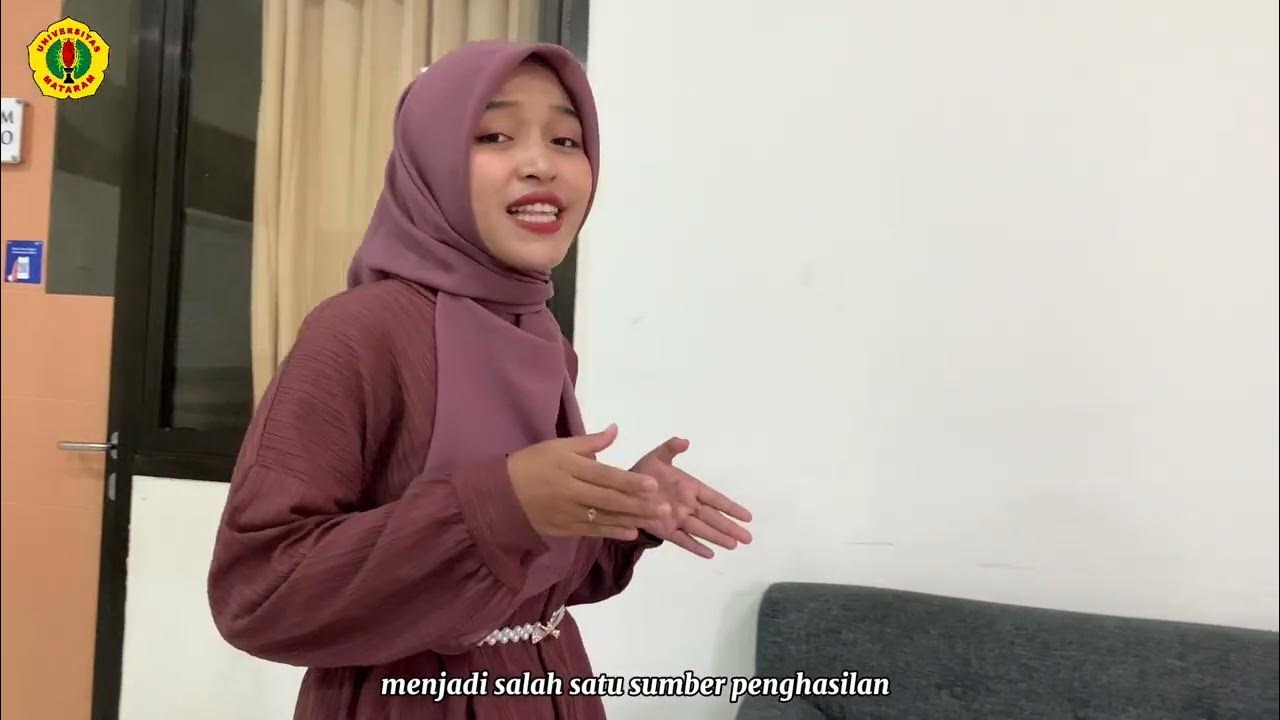NELAYAN SELAT ALAS & PASIR REKLAMASI - Ekspedisi Indonesia Biru #18
Summary
TLDRThis video script follows the environmental and economic struggles in Lombok, Indonesia. A pesantren in Lombok Barat attempts to manage its daily one-ton waste production, while fishermen in Lombok Timur face challenges from the proposed sand dredging for a 700-hectare reclamation project in Teluk Benoa, Bali. Fishermen worry about its impact on the local marine ecosystem and their livelihoods. Additionally, the script highlights the reliance of fishermen on fuel, the fluctuating fish catch, and emerging tourism ventures as an alternative income source amidst the uncertainties of traditional fishing.
Takeaways
- 🌍 The pesantren in West Lombok processes its own waste, reaching 1 ton per day, as part of its social responsibility education, though it's not fully environmentally friendly yet.
- 🏖️ 25 million cubic meters of sand from East Lombok is allegedly targeted for the reclamation project in Benoa Bay, Bali.
- 🚤 Tanjung Luar, a fishing village with over 1,000 ketinting boats, relies on the fragile marine ecosystem for its livelihood.
- ⚖️ Fishermen in Tanjung Luar are concerned that dredging sand for the reclamation project will damage their coastal environment and marine life.
- 🐟 Fisherman Muhammad Thahri struggles with low fish catches in the Alas Strait, making less than Rp200,000 per trip, barely covering fuel costs.
- ⛽ The fishermen depend heavily on fuel, which is frequently in short supply, causing economic pressure, especially with rising fuel prices.
- 🛢️ Local fuel stations often run out, forcing fishermen to rely on fuel resellers like Hasanuddin, who sell at higher prices.
- 🎣 BBM (fuel) is a non-substitutable resource for fishermen, making it impossible for them to reduce consumption even when prices increase.
- 🏝️ Muhammad Thahri diversifies his income by offering local tourism services, guiding trips to Pink Beach and Sand Island.
- 🛥️ Tourism, especially trips to scenic spots like Pink Beach, is becoming a more reliable income source for fishermen, as fishing becomes increasingly uncertain.
Q & A
What is the primary environmental issue being addressed by the pesantren in West Lombok?
-The pesantren in West Lombok is addressing the issue of waste management, as it deals with about 1 ton of waste per day. Although their system is not yet fully eco-friendly, it plays a key role in educating and instilling social responsibility among the students.
What project is mentioned in relation to the extraction of sea sand from East Lombok?
-The project mentioned is the reclamation of Teluk Benoa in Bali, a 700-hectare area, for which 25 million cubic meters of sea sand from East Lombok is reportedly being targeted.
What concerns do local fishermen have about the sand extraction project?
-Local fishermen are concerned that the sand extraction will damage the marine ecosystem. They fear the removal of sand could cause erosion and affect coral reefs, which are important for fishing. They feel that while development may benefit others, it will destroy their livelihoods.
How many small boats depend on the marine ecosystem in Tanjung Luar, according to the script?
-There are at least 1,000 small boats, or 'ketinting,' in Tanjung Luar that rely on the sustainability of the marine ecosystem for their livelihoods.
What economic challenges do fishermen in Tanjung Luar face besides environmental threats?
-In addition to environmental concerns, fishermen face economic challenges related to fuel shortages and price increases. Fuel is a critical part of their livelihood, and they struggle to keep up with fluctuating fuel prices and availability.
How much money does a fisherman typically make if they fill their boat with fish, and why is it not always profitable?
-If a fisherman fills their boat with fish, they may make around IDR 200,000, which barely covers fuel costs. Due to unpredictable conditions at sea, it is not always possible to catch enough fish to make a profit, often leading to financial losses.
What solution do some fishermen turn to when fuel is scarce at official stations?
-When fuel is scarce at official stations, some fishermen turn to local fuel sellers, such as Hasanuddin, who sell fuel at a higher price, typically IDR 7,000 to IDR 7,200 per liter.
Why has Muhammad, one of the fishermen, started a local tourism business?
-Muhammad has started a local tourism business because he recognizes that relying solely on fishing is not always sustainable or profitable. He finds that tourism offers a more stable income compared to the uncertainties of fishing.
What are the key attractions in Muhammad’s tourism package?
-Muhammad’s tourism package includes visits to the Pink Beach, known for its pink-colored sand, and Pasir Island, a sandbar that appears during low tide. He charges IDR 500,000 for a full-day tour of these spots.
What new economic opportunities do local fishermen see beyond fishing?
-Local fishermen see opportunities in the tourism industry, where they can capitalize on the natural beauty of their region to offer guided tours and earn a more reliable income compared to the volatile fishing industry.
Outlines

このセクションは有料ユーザー限定です。 アクセスするには、アップグレードをお願いします。
今すぐアップグレードMindmap

このセクションは有料ユーザー限定です。 アクセスするには、アップグレードをお願いします。
今すぐアップグレードKeywords

このセクションは有料ユーザー限定です。 アクセスするには、アップグレードをお願いします。
今すぐアップグレードHighlights

このセクションは有料ユーザー限定です。 アクセスするには、アップグレードをお願いします。
今すぐアップグレードTranscripts

このセクションは有料ユーザー限定です。 アクセスするには、アップグレードをお願いします。
今すぐアップグレード関連動画をさらに表示

UAS KOMUNIKASI LINGKUNGAN_KELOMPOK 1

TANAH KUSEWA, AIR KUBELI - Episode #16 Ekspedisi Indonesia Baru

MEMUNGGUNGI LAUT - Ekspedisi Indonesia Biru #45

TUJUH BUKIT - Episode #06 Ekspedisi Indonesia Baru

LEGENDA GUNUNG RINJANI ~ Cerita Rakyat Nusa tenggara Barat | Dongeng Kita

Honest thoughts on Lombok Indonesia.
5.0 / 5 (0 votes)
